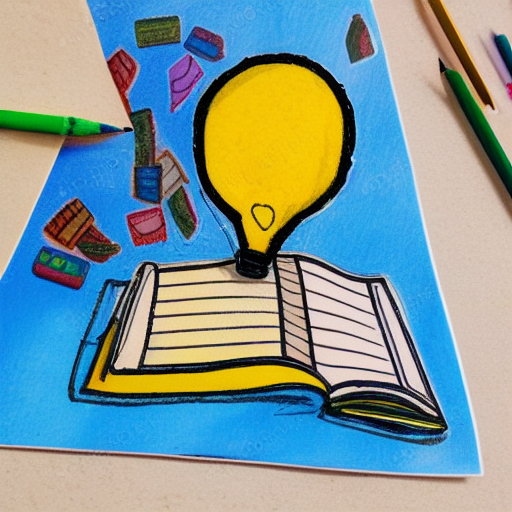Title: Unlocking the Mind: The Fascinating Journey of Writing and Cognitive Development
Writing is a fundamental skill that plays a crucial role in communication, expression, and cognitive development. As individuals grow and mature, their writing skills evolve, reflecting the intricate interplay between cognitive processes and the written word. In this blog post, we will delve into the captivating world of writing and cognitive development, exploring how the act of writing shapes and is shaped by our mental faculties from childhood to adulthood.
The Emergence of Scribbles and Symbols in Early Childhood
The journey of writing begins at a tender age when children engage in scribbles and drawings that might seem random to adults but are an essential milestone in cognitive development. As young minds grasp a crayon and leave their marks on paper, they explore the connection between their thoughts and visual representation. This preliminary stage sets the foundation for the development of fine motor skills, spatial awareness, and symbolic thinking.
From Scribbles to Alphabets: The Importance of Phonological Awareness
As children advance in their cognitive development, they embark on the path of learning alphabets and phonics. Understanding the relationship between letters and their corresponding sounds, known as phonological awareness, is a pivotal cognitive skill that underpins the ability to read and write. Through phonics exercises and exposure to language, children’s brains establish neural connections that enhance their ability to recognize, interpret, and produce written language.
Unlocking Creativity: The Cognitive Link Between Imagination and Writing
As children mature further, their cognitive development allows them to tap into their creativity and imagination. This connection between cognitive abilities and writing is evident in the emergence of storytelling and creative writing. As their vocabulary expands and they gain a deeper understanding of narrative structures, children can weave imaginative tales on paper, reflecting their cognitive growth and comprehension of the world around them.
Adolescence and Identity: Writing as a Medium of Self-Expression
During adolescence, writing takes on a new dimension as individuals grapple with the complexities of identity formation. Adolescents use writing as a means to express their thoughts, emotions, and experiences. Whether through journaling, poetry, or personal essays, writing serves as a medium for self-reflection and understanding. This process of self-expression fosters cognitive development by promoting introspection and critical thinking.
Academic Writing and Higher Cognitive Functions
As individuals transition into adulthood, academic writing becomes a key aspect of cognitive development. The ability to analyze, synthesize, and articulate complex ideas is crucial for success in higher education and professional settings. Academic writing demands the integration of knowledge, critical reasoning, and persuasive communication, all of which are products of advanced cognitive capabilities.
Writing and Cognitive Resilience in Older Adults
The relationship between writing and cognitive development persists throughout the lifespan, even into old age. Studies have shown that engaging in regular writing exercises, such as maintaining a journal or participating in writing groups, can contribute to cognitive resilience and may even reduce the risk of cognitive decline in older adults. Writing serves as a cognitive workout, keeping the mind agile and active.
Conclusion
The journey of writing and cognitive development is a remarkable and interconnected process that spans from the scribbles of early childhood to the sophisticated expressions of adulthood. As we unlock the potential of writing, we simultaneously nurture the growth of our cognitive abilities. From honing fine motor skills and phonological awareness to unlocking creativity, self-expression, and advanced cognitive functions, writing serves as a dynamic medium for exploring the depths of the human mind.
By understanding this relationship, educators, parents, and individuals can harness the power of writing to stimulate cognitive development and promote a lifelong love for the written word. Let us celebrate the wonders of writing as it continually shapes and reshapes our minds, taking us on a perpetual journey of cognitive growth and discovery.







